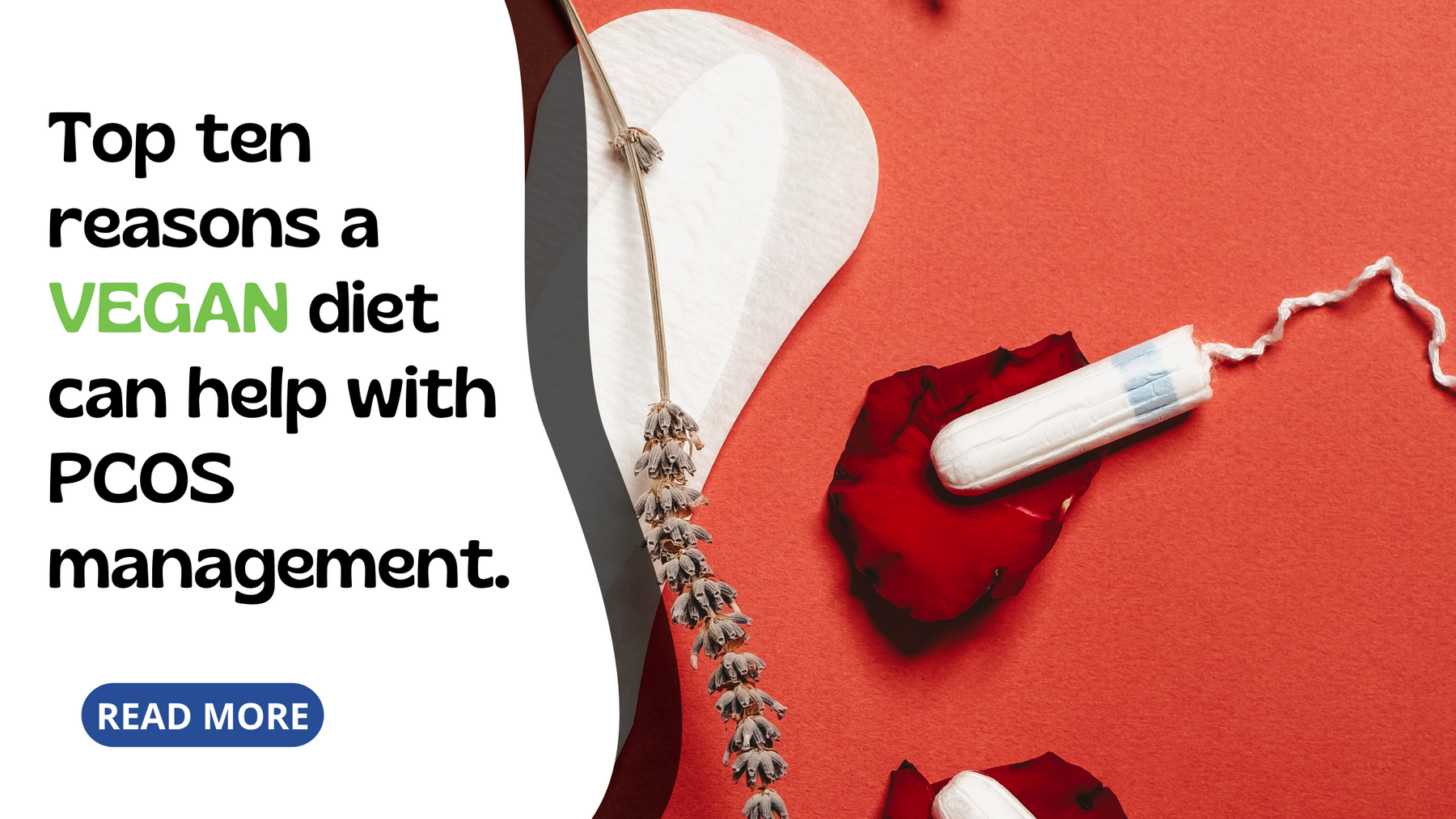
Top 10 Reasons Why A Vegan Diet Helps With PCOS Management
PCOS/ PCOD has come into quite the limelight in today's times. With celebrities like Sara Ali Khan and Victoria Beckham being vocal about their struggles, more and more people are now comfortable talking about the disorder.
Some statistics show that one in 4 women of child- bearing age struggle with symptoms of PCOS. Now while this might sound alarming, PCOS is a lifestyle disease and can be managed with lifestyle changes alone.
As a matter of fact, women in urban population's are more likely to develop symptoms of PCOS than women living in rural population. Our current stressful lifestyle, erratic eating habits and exposure to chemicals which act as hormonal disrupters in the environment are all to blame.

But besides lifestyle, does nutrition also play a role? More that you can imagine.
Hormone Health and PCOS.
PCOS management is about managing hormonal health. The food you eat can directly impact your sex hormone production and excretion.
If you have excess estrogen (female sex hormone) in the body, these lead to painful periods, excessive bleeding and even fibroids. Too much of testosterone (another sex hormone) could lead to facial hair, male patter baldness and even irregular periods.
What is the best diet for PCOS management?
There are a few school's of thought here. Lets explore a few ways one can manage PCOS with nutritional changes.
- A low AGE diet.
AGE's are endotoxic compounds in foods that lead to inflammation and oxidation in the body. AGE receptors are concentrated in the ovaries and thus, women are affected by them more than men.
Women with PCOS also tend to have twice the amount of AGEs in their system when tested VS women who do not struggle from PCOS. Scientific studies strongly link foods high in AGEs with PCOS.

AGEs are produced in when animal meat or dairy is cooked. Ghee for instance, has high quantities of AGEs. Meat also when cooked is very high and must be avoided.
Thus, following a low AGE diet is optimal for PCOS management.
- A low fat diet.
Fats, particularly saturated fats coming from oil's, dairy and eggs can also be a huge causative factor for PCOS.
Fats can be harmful for two reasons, firstly, they are high in calories. Fat's have twice as many calories when compared with proteins or carbs. Not only this, most often fat's such as oil's and eggs lack any fiber, thus making them dense in calories but not filling enough. This leaves you craving for more food and more weight gain.

Secondly, processed fats such as cottage cheese, hydrogenated oil's and ghee are harmful for the good flora of the gut. Being inflammatory, they give rise to bad gut bacterial colonies, the type that leads to hormonal imbalance, and destroy the gut gut bacterial colony, the type that maintain hormonal harmony.
- A high- fiber diet.
Most of us associate fiber with a raw salad. But fiber is really the building block of plants. Just like the animal kingdom has a skeleton, plants have fiber. Legumes, fruits, grains, seeds, nuts etc anything in its whole state that once grew from the soil has fiber.
Our recommended daily intake of fiber is 25- 35 grams. But most of us get no more than 15- 20 grams per day. This could be a warning sign, especially given the nutritive benefits of fiber to our health.

For PCOS management specifically, fiber plays a crucial role in flushing out excess hormones from the body. Excess toxins and hormones int he body are sent to the liver for detoxification. The liver then sends these to the gut to be flushed out. But the gut can only flush them out by attaching them to fiber molecules coming from he food we eat.
Now if you do not consume enough fiber, the gut has no way of flushing them out, thus left with no choice but to recycle them back to your body.
Following a diet high in fiber alone can help manage most PCOS symptoms. This is also why it is one of the key lifestyle changes we make for all my clients following my program.
The above might seem like a lot of different types of diets, but what if there was one universal diet that covers all of the above. There is, it is called a whole- food plant- based diet.
Lets look at the top ten reasons why a whole- food plant- based diet might be the best approach for PCOS management.
Success stories and expert insights.
Let's Just Talk. No Obligations.
I do free consultations every Tuesday's and Thursday's. Either way you will get some actionable tips to reach your fitness goals faster.


Leave a comment